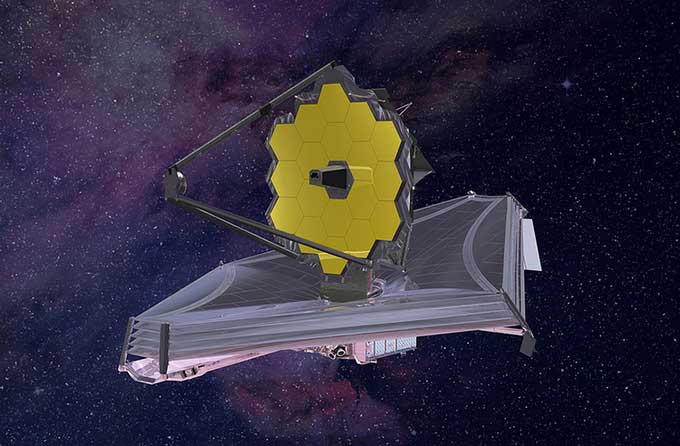James Webb telescope completes final test, set to launch in October
After several delays, the successor to the Hubble space telescope could be launched in October this year.
In a new statement, the US space agency (NASA) said that it has completed the final test phase of the James Webb space telescope (JWST) and is ready to "pack it up" for shipping to the base. launch station.

Simulation of the James Webb space telescope in operation. (Photo: NASA)
JWST was originally scheduled to launch in 2007, but underwent a major redesign and was rescheduled to 2015. For various reasons, the mission was further delayed to 2018, after that is June 2019, 5/2020, 3/2021 and most recently October 2021. However, this seems to be the final launch schedule.
The James Webb mission faced many challenges due to being bound to the second "Lagrange Point" in the Earth-Sun system, one of five interplanetary space locations where the gravity of two massive objects and centrifugal force are equal. Because it is nearly a million miles away, astronauts cannot visit it for repairs and upgrades like they did with Hubble.

Engineers test JWST in the Northrop Grumman facility. (Photo: NASA).
After completing the final tests and checks to make sure the new telescope would work properly, NASA's engineering team folded its sunshade pallets into the central tower and locked it all together. , ready to put in a container. These preparatory works are expected to be completed in September.
The JWST will then be transported from Northrop Grumman's facility in California to the launch site in Kourou, French Guiana, on the northeastern coast of South America, where it will be packed into a capsule atop the launch rocket. Ariane 5, ready to leave Earth after so many years of waiting.
Dubbed a 'past-the-past instrument' , the JWST, when operational, will scan the universe in infrared for at least a decade, providing a further and clearer view of deep space. With the ability to observe objects more than 13.5 billion light-years away, the instrument is expected to be able to discover the first stars and galaxies that formed after the Big Bang.
- The James Webb Space Telescope will be launched into orbit in October 2018
- NASA finished assembling $ 9.7 billion telescope
- NASA has postponed the world's most powerful space telescope
- Super telescope looks back 13.5 billion years of failed testing
- NASA reversed the time of launching the James Webb space telescope until 2020
- NASA restarted the Hubble telescope replacement project
- Telescope James Webb will search for alien life
- NASA completed the telescope looking back past 13 billion years
- NASA is about to finish the machine looking past 13.5 billion years
- NASA launches a new space telescope
- Testing a machine looking back past 13.5 billion years
- NASA hides technology on telescopes looking backwards
 Norway built the world's tallest wooden tower
Norway built the world's tallest wooden tower Kremlin
Kremlin Ashurbanipal: The oldest royal library in the world
Ashurbanipal: The oldest royal library in the world Decoding the thousand-year construction of Qin Shihuang shocked the world
Decoding the thousand-year construction of Qin Shihuang shocked the world